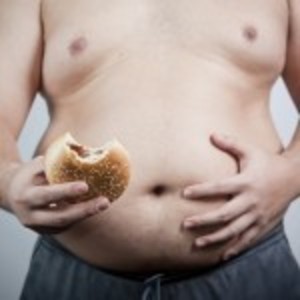Two publications from the same the study population (Rochester Young Men’s Study) affirmed what women everywhere have long suspected: active, healthy men make better mates. That’s right, exercise and healthy diet affect a man’s ability to mate at the most fundamental level – his sperm quality.
Researchers from Harvard’s School of Public Health found that otherwise health young men (ages 18-22, n = 188) who were predominantly sedentary and/or eat poorly had significantly fewer sperm and slower, less active sperm. Because the studies were analyzed and published separately and we were only able to access the abstracts, it is not clear if men who were both sedentary and had a poor diet suffered greater reductions in sperm quantity and quality than men who met only one of those requirements. We can only surmise that it would be the case.
Physical activity and sperm quantity. Men with greater than 15 hours per week of moderate to vigorous activity had an average 73% more sperm than men who were largely sedentary and exercised <5 hours per week.
Diet and sperm quality. Men who ate well and included fruits, vegetables and fish in their diets had 11% more active (motile) sperm than men who ate the typical western diet rich in processed food and red meat.
The takeaway, exercise and healthy diet impact one’s ability to conceive at the most basic level. So before mating or seeking pricey fertility treatments, consider cleaning up your diet and lifestyle.















